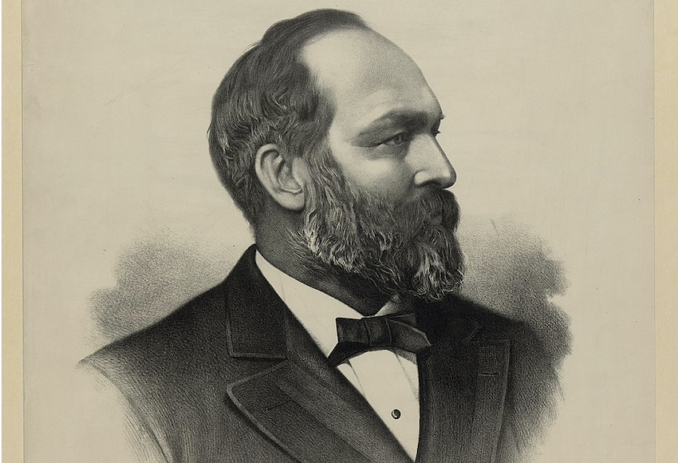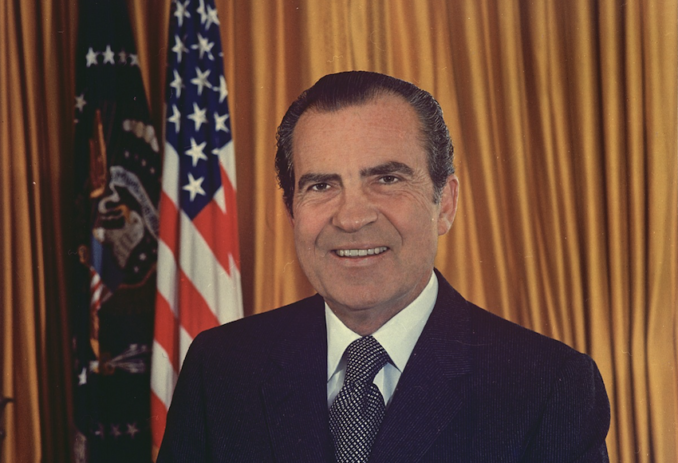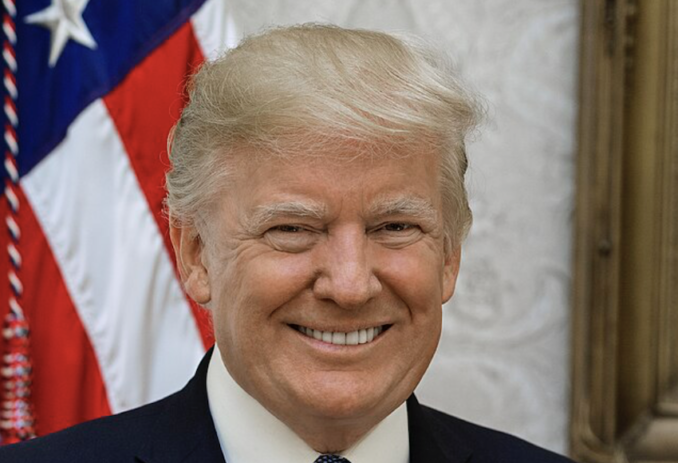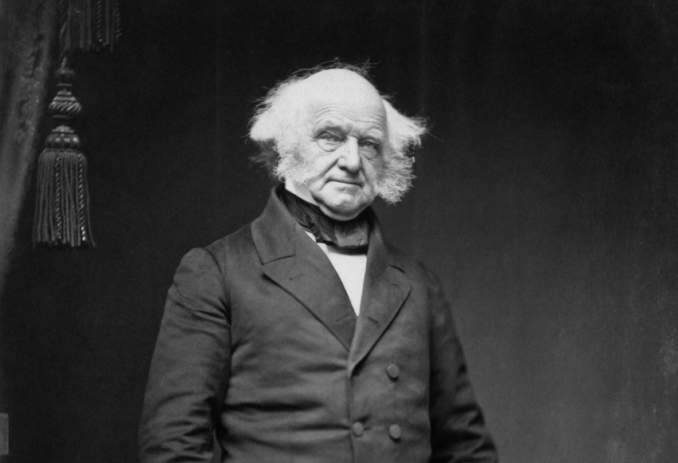American presidencies have typically followed the expected path of an election cycle, with presidents either completing their terms or being voted out of office. However, the history of the United States includes several presidencies that ended in highly unusual, often tragic, and historically significant ways. These are stories of assassinations, resignations, impeachments, and deaths by natural causes which highlight the unpredictability and vulnerability inherent in the office of the presidency.
Assassinations
The United States has witnessed the assassinations of four sitting presidents, each bringing their tenure to a sudden and violent end, and leaving the nation in shock and mourning.
Abraham Lincoln
The 16th president was assassinated by John Wilkes Booth on April 14, 1865. Lincoln was attending a play at Ford’s Theatre in Washington, D.C., when Booth, a Confederate sympathiser, shot him in the back of the head. The assassination occurred just days after General Robert E. Lee’s surrender at Appomattox Court House, effectively ending the Civil War. Lincoln died the following morning, making him the first U.S. president to be assassinated. His death plunged the nation into deep mourning and complicated the Reconstruction process in the post-war South. Lincoln’s assassination is often viewed as a pivotal moment in American history, marking the end of his efforts to heal the nation and laying the groundwork for the turbulent Reconstruction era.
James A. Garfield
The 20th president, was shot by Charles J. Guiteau on July 2, 1881. Guiteau was a disgruntled office seeker who felt that he had been denied a government appointment. Garfield was shot at the Baltimore and Potomac Railroad Station in Washington, D.C., and succumbed to his injuries on September 19, 1881, after suffering from infections and poor medical care. Garfield’s assassination highlighted the dangers of the patronage system and ultimately led to civil service reform with the passage of the Pendleton Civil Service Reform Act in 1883, which aimed to reduce corruption by making government jobs contingent on merit rather than political connections.

James A. Garfield,
Popular Graphic Arts – Public domain
William McKinley
The 25th president was assassinated by anarchist Leon Czolgosz on September 6, 1901, during a public reception at the Pan-American Exposition in Buffalo, New York. McKinley was shot twice in the abdomen and died on September 14, 1901, from gangrene caused by the wounds. His assassination underscored the growing tensions and unrest within the United States and around the world at the turn of the century. McKinley’s death brought Theodore Roosevelt to the presidency, ushering in an era of progressive reforms and an assertive American foreign policy.
John F. Kennedy
The 35th president was assassinated on November 22, 1963, by Lee Harvey Oswald while riding in a motorcade in Dallas, Texas. Kennedy’s assassination was a defining moment in modern American history, shocking the nation and the world. The circumstances surrounding his death, including the subsequent murder of Oswald by Jack Ruby, have fueled numerous conspiracy theories and extensive investigations. Kennedy’s assassination led to significant changes in presidential security and contributed to a sense of lost innocence and heightened political cynicism in the United States.
Resignations
Only one president in American history has resigned from office, making it a unique and extraordinary event.
Richard Nixon
The 37th president, resigned on August 8, 1974, amid the Watergate scandal. The scandal began with the break-in at the Democratic National Committee headquarters at the Watergate complex and the subsequent cover-up by the Nixon administration. As the investigation unfolded, it became clear that Nixon had participated in the cover-up and abused his power. Facing imminent impeachment and removal from office, Nixon chose to resign. His resignation was a profound moment in American political history, marking the first time a president had voluntarily left office under such circumstances. Vice President Gerald Ford assumed the presidency and later pardoned Nixon for any crimes he might have committed while in office, a controversial decision that aimed to help the nation move past the scandal.

Portrait of President Nixon,
U.S. National Archives and Records Administration – Public domain
Impeachment and Trials
The U.S. Constitution provides a mechanism for the impeachment of a president, but only three presidents have been impeached, and none have been removed from office through this process.
Andrew Johnson
The 17th president, was impeached by the House of Representatives in 1868. Johnson, who succeeded Abraham Lincoln after his assassination, faced immense opposition from the Radical Republicans in Congress. The primary charge against him was the violation of the Tenure of Office Act by removing Secretary of War Edwin M. Stanton without Senate approval. Johnson’s impeachment trial in the Senate resulted in acquittal by just one vote, allowing him to complete his term. Johnson’s impeachment highlighted the intense political battles during Reconstruction and the struggle over the balance of power between the presidency and Congress.
Bill Clinton
The 42nd president was impeached by the House of Representatives in 1998 on charges of perjury and obstruction of justice related to his extramarital affair with White House intern Monica Lewinsky. The impeachment proceedings were highly partisan, reflecting deep political divisions. The Senate trial resulted in Clinton’s acquittal, allowing him to remain in office and complete his second term. The Clinton impeachment underscored the evolving nature of media and public scrutiny in presidential scandals and raised questions about personal conduct versus official duties.
Donald Trump
The 45th president was impeached twice by the House of Representatives. The first impeachment in 2019 was for abuse of power and obstruction of Congress related to his alleged attempts to pressure Ukraine to investigate political rival Joe Biden. The second impeachment in 2021 was for incitement of insurrection following the January 6 Capitol riot, where Trump supporters trespassed the U.S. Capitol Building in protest over the conduct of the 2020 presidential election. Trump was acquitted by the Senate both times. His impeachments highlighted deep political and societal divisions and tested the resilience of American democratic institutions.

Official White House portrait of President Donald J. Trump,
Shealah Craighead – Licence Public Domain
Deaths by Natural Causes
Four presidents have died of natural causes while in office, each death leading to the sudden and unexpected transfer of power.
William Henry Harrison
The 9th president holds the record for the shortest presidency, lasting only 31 days. Harrison died of pneumonia on April 4, 1841, after delivering a lengthy inaugural address in cold weather without adequate protection. Being the first president to die in office, his passing set the precedent for future similar transitions of power.
Zachary Taylor
The 12th president died on July 9, 1850, after serving just over a year in office. His death was attributed to acute gastroenteritis, though some theories suggest other causes such as food poisoning or heat stroke. Taylor’s unexpected death led to the presidency of the long-forgMillard Fillmore and significantly impacted the contentious debates over slavery and territorial expansion.
Warren G. Harding
The 29th president, died of a heart attack on August 2, 1923, while on a cross-country tour. Harding’s administration was later marred by scandals, most notably the Teapot Dome Petroleum Reserve scandal, which involved corruption and bribery within his administration. His death brought Calvin Coolidge to the presidency and shifted the political landscape of the 1920s.
Franklin D. Roosevelt
The 32nd president, died of a cerebral haemorrhage on April 12, 1945, during his fourth term in office. Roosevelt’s unprecedented four terms were marked by his leadership during the Great Depression and World War II. His death came just months before the end of the war, and his successor, Harry S. Truman, faced the immense challenge of concluding the conflict and shaping the post-war world. Roosevelt’s death also led to the passage of the 22nd Amendment, which limits presidents to two terms in office.
Other Unusual Circumstances
Several other presidents experienced unique or notable circumstances surrounding the end of their presidencies.
John Quincy Adams
The 6th president lost his re-election bid in 1828 to Andrew Jackson in a bitter and highly personal campaign. Adams’s defeat was unusual in that he later went on to have a distinguished career in the House of Representatives, serving for 17 years until his death. His post-presidential career was marked by his strong opposition to slavery and his advocacy for various causes, demonstrating a rare return to public service after leaving the presidency.
Martin Van Buren
The 8th president was defeated in his bid for re-election in 1840 by William Henry Harrison. Van Buren’s presidency was plagued by economic difficulties, including the (financial) Panic of 1837, which contributed to his loss. Despite this setback, Van Buren remained active in politics and made several attempts to return to the presidency, including running as a candidate for the Free Soil Party in 1848.

Imperial print of Martin Van Buren,
Mathew Benjamin Brady – Licence Public Domain
Grover Cleveland
President Cleveland experienced a unique tenure, serving two non-consecutive terms as the 22nd and 24th president. After losing his re-election bid in 1888 to Benjamin Harrison, Cleveland made a successful comeback in 1892, becoming the only president to serve two non-consecutive terms. A record that may be matched in November of this year by Republican presidential nominee Donald J Trump.
Woodrow Wilson
The 28th president, whose parents were married in our very own Carlisle, suffered a severe stroke in October 1919, which left him incapacitated for the remainder of his term. His wife, Edith Wilson, took on an unprecedented role, effectively managing many of his responsibilities and decisions during his recovery. In December of the previous year, President Wilson visited the place of his parent’s birth while en route to the Paris Peace Conference which established the terms of peace after WWI.
After Wilson’s health crisis, the resulting “stewardship” by Edith highlighted issues of presidential disability and succession, which were later addressed by the 25th Amendment.
These unusual endings to American presidencies underscore the inherent uncertainties and challenges of the highest office in that nation. Whether through assassination, resignation, impeachment, natural death, or unique circumstances, each event impacts the United State’s political landscape and historical trajectory. The resilience and adaptability of the American political system have been tested repeatedly, demonstrating both its strengths and its vulnerabilities, not least in the Democrat’s recent inability to choose a suitable politically and medically fit opponent to face Donald J Trump.
© Always Worth Saying 2024



